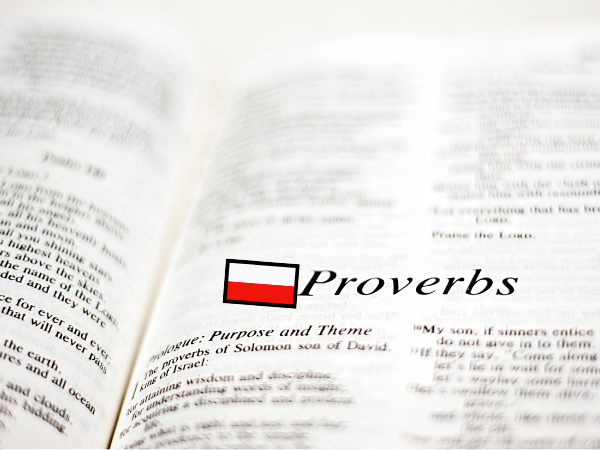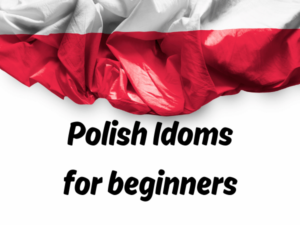Polish proverbs are rich with meaning and cultural significance, reflecting the values and beliefs of the Polish people. These sayings provide insights into life, relationships, and the human experience. In this post, we’ll explore 20 Polish proverbs, their translations, and what they teach us about life.

1. Nie ma tego złego, co by na dobre nie wyszło.
Translation: “There is no bad that wouldn’t lead to good.”
Meaning: Even in difficult times, something positive can emerge.

2. Jak sobie pościelesz, tak się wyśpisz.
Translation: “As you make your bed, so you must lie in it.”
Meaning: Your actions have consequences; you must live with them.

3. Gdzie kucharek sześć, tam nie ma co jeść.
Translation: “Where there are six cooks, there is nothing to eat.”
Meaning: Too many people involved can lead to chaos and inefficiency.
4. Czas leczy rany.
Translation: “Time heals wounds.”
Meaning: Emotional pain fades with time.
5. Kto pod kim dołki kopie, ten sam w nie wpada.
Translation: “He who digs a pit for others falls into it himself.”
Meaning: Those who wish harm upon others often find themselves suffering.
6. Nie wszystko złoto, co się świeci.
Translation: “Not everything that glitters is gold.”
Meaning: Appearances can be deceiving.
7. Lepszy wróbel w garści niż gołąb na dachu.
Translation: “A sparrow in the hand is better than a pigeon on the roof.”
Meaning: It’s better to have a sure thing than to risk it for something greater.
8. Mądry Polak po szkodzie.
Translation: “A wise Pole after the damage.”
Meaning: People often learn from their mistakes.
9. Co nagle, to po diable.
Translation: “What’s done in haste is of the devil.”
Meaning: Rushing can lead to mistakes.
10. Darowanemu koniowi w zęby się nie zagląda.
Translation: “Don’t look a gift horse in the mouth.”
Meaning: Don’t criticize something given to you for free.
11. Póty dzban wodę nosi, póki mu się ucho nie urwie.
Translation: “The pitcher carries water until its handle breaks off.”
Meaning: You can only stretch something to its limit before it fails.
12. Każdy kij ma dwa końce.
Translation: “Every stick has two ends.”
Meaning: Every situation has two sides.
13. Kuj żelazo, póki gorące.
Translation: “Strike the iron while it’s hot.”
Meaning: Take advantage of opportunities while they last.
14. Pierwsze koty za płoty.
Translation: “The first cats are over the fence.”
Meaning: The first attempt is often the hardest, but it gets easier afterward.
15. Nie chwal dnia przed zachodem słońca.
Translation: “Don’t praise the day before the sun sets.”
Meaning: Don’t celebrate something until it’s fully done.
16. Z dużej chmury mały deszcz.
Translation: “A big cloud makes little rain.”
Meaning: Big promises often lead to small results.
17. W zdrowym ciele zdrowy duch.
Translation: “A healthy spirit in a healthy body.”
Meaning: Physical health is essential for mental well-being.
18. Bez pracy nie ma kołaczy.
Translation: “Without work, there are no cakes.”
Meaning: Hard work is necessary for rewards.
19. Kto rano wstaje, temu Pan Bóg daje.
Translation: “He who gets up early is given by God.”
Meaning: Those who wake up early are rewarded, often with a wink at the luxury of sleep.
20. Jak się nie ma, co się lubi, to się lubi, co się ma.
Translation: “If you don’t have what you like, you like what you have.”
Meaning: People learn to appreciate what they have, even if it’s not ideal.
Conclusion
These 20 Polish proverbs offer valuable insights into life and the human experience. They reflect the wisdom of generations and can be applied to various situations in our daily lives. Whether you’re looking for guidance, motivation, or simply a deeper understanding of Polish culture, these proverbs are a great resource. Embrace the wisdom of Polish proverbs and let them guide you on your journey!
If you are planning to visit Poland soon check out our Supermarket list in Poland




